Search Results
Showing results 301 to 320 of 901
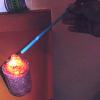
Hot Stuff!: Creating and Testing for Carbon Dioxide
In this demonstration, learners observe vinegar and baking soda reacting to form carbon dioxide (CO2) gas.
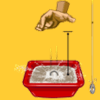
Comet Cratering
Source Institutions
Make impact craters with marbles (or rocks or washers) in a container of flour. Find out what you can learn about your "comets" by the craters they make.
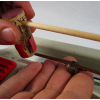
How to Make an Audio Tape Bow
Source Institutions
From this How To slide show, you create an Audio Tape Bow that can play distorted audio sounds by running it across a tape head.
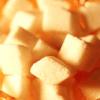
Sugar Crystal Challenge
Source Institutions
This lesson focuses on surface area and how the shape of sugar crystals may differ as they are grown from sugars of different coarseness.
Haunted by Hurricanes: Use Data to Learn About Hurricanes
Source Institutions
In this activity, learners will determine if the frequency and intensity of hurricanes are changing using real data from the National Hurricane Center.
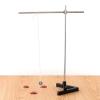
Strange Attractor: Observe Chaotic Motion
Source Institutions
In this activity, learners can observe chaotic motion. A magnet tied to a piece of string makes a pendulum, which swings over three sets of fixed magnets.

Light Maze
Source Institutions
In this activity, learners will explore light with reflective surfaces. Learners will make predictions and share their observations as they experiment with directing a beam of light.
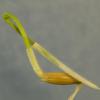
Germination Station
Source Institutions
In this botany activity, learners will create an experiment about seed germination. This activity gives students an opportunity to explore how seeds germinate and react to surrounding conditions.

Measuring Blood Pressure in Space
Source Institutions
In this activity (page 105 of the PDF), learners measure heart rate and blood pressure and learn how to obtain consistent measurements during repeated tests.

What Cells Can I See in Muscle and Spinal Cord Tissues?
Source Institutions
In this activity (page 37 of the PDF), learners observe, on a prepared slide, muscle and spinal cord cells from a rat.

What's So Special about Water: Surface Tension
Source Institutions
In this three-part activity, learners play a game and conduct two simple experiments to explore water and surface tension. Learners will have fun discovering how water "sticks" together.

Hot Cans and Cold Cans
Source Institutions
Learners apply their knowledge of heat transfer to design two cans - one that will retain heat and one that will cool down quickly.
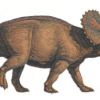
X-ray Dinosaurs
Source Institutions
In this activity, learners explore dinosaur fossils and skeletons. First, learners listen to "Tyrannosaurus Rex" by Daniel Cohen to learn about T. rex dinosaurs specifically.

Cook with a Solar Oven
Source Institutions
In this activity, learners make their own solar oven to bake s'mores and learn about how solar energy is absorbed on Earth.

Strange Soap
Source Institutions
In this physics activity, learners experiment with soap bubbles to see what variables affect their size. They explore how soap film and bubbles always seek the smallest surface area possible.
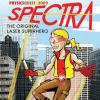
Twist & Shout
Source Institutions
Learners examine what happens when a tube spins in two directions at once. They push on a cardboard tube causing it to spin along its length while at the same time turning from end-to-end.
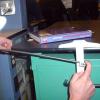
Bend That Bar
Learners play the role of materials engineers as they test the flexibility of different materials.

Make a Dinosaur
Source Institutions
In this activity, learners explore the size and scale of dinosaurs. Learners listen to "Dinosaurs, Dinosaurs" by Byron Barton to understand some background information about dinosaurs.

Inertia
Source Institutions
In this physics activity (page 8 of the PDF), learners will explore the concept of inertia by attempting to run and stop quickly.
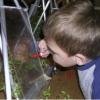
Drawing From Nature
Source Institutions
In this activity, learners draw natural objects to explore the details, differences, and similarities of natural objects.
